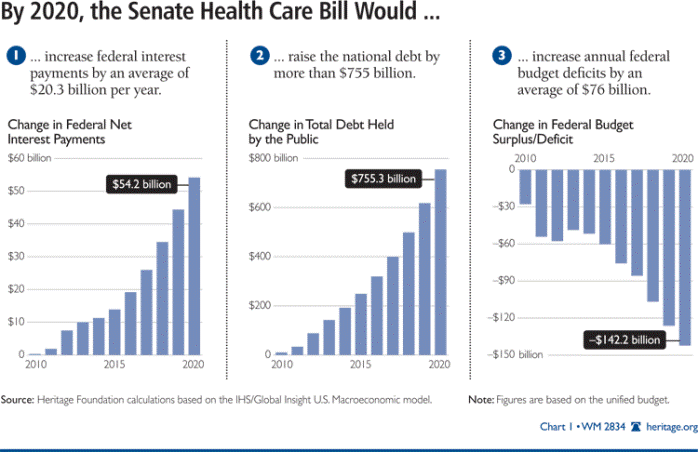[Other than that it's a swell idea.]
- The Congressional Budget Office (CBO) shows deficit neutrality for the Senate bill -- however, this is based on static analysis which ignores the effects new taxes and an individual and employer mandate would have on economic growth.
- These provisions would decrease investment in the economy, resulting in lower wages and salaries; this means less taxable income, lowering federal revenues and growing the debt.
- Increased borrowing puts upward pressure on interest rates causing some private sector productive investment opportunities to be foregone.
- This also increases the interest owed on the national debt, such that the government would pay, on average, $20 billion more in interest between 2010 and 2020; by the end of the decade, the publicly held debt would be $755 billion dollars more than under current law.
Increases insurance premiums:
- Mandates in the Senate bill would require health plans to offer more generous coverage, increasing the cost of insurance.
- Increased spending on premiums, accompanied by increased medical spending, would create upward pressure on prices.
- This would further increase government spending, since offering the current levels of care covered by Medicaid and the proposed subsidies would cost significantly more.
- The only other option would be to ration provider payments even more severely.
Increases unemployment:
- Dynamic analysis of the bill shows that an average 690,000 jobs per year would be lost due to the effects described above.
READ MORE














No comments:
Post a Comment